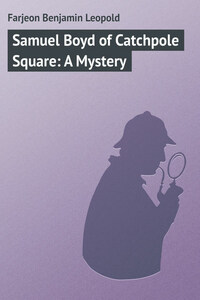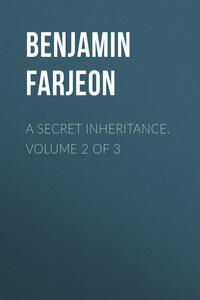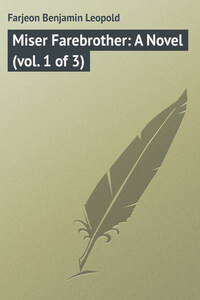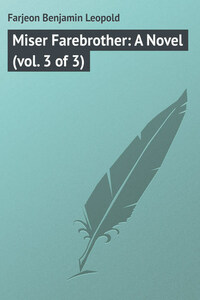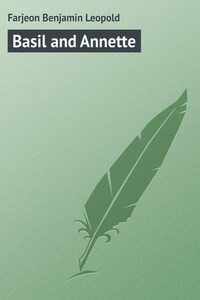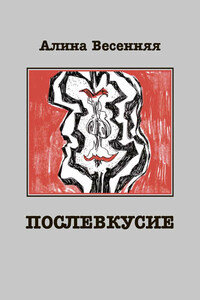CHAPTER I
ABEL DEATH AT WORK
At six o'clock in the evening of the first day of March, in the year of Grace, 1898, Abel Death, a man of middle age, with a face appropriate to his name-which should never be given to any living human being-was sitting at his desk, employed in the task of writing the last of a number of letters, in accordance with the instructions of his employer, Mr. Samuel Boyd, of No. 6, Catchpole Square, in the North district of London. The letters all referred to Money: to Money due for principal and interest, and to warnings and threats of what would be done in case prompt payment was not made at such and such an hour on such and such a day. Uncompromising and relentless to the point of cruelty, debtors were told in plain terms that ruin was their portion if Mr. Boyd's demands were not complied with.
Abel Death appeared to be just the kind of man for the task he was executing, being hollow cheeked and sunken eyed; his hands were long and lean, his movements eager and restless. Clad in shabby and badly fitting clothes, he did not belie the position he occupied, that of an ill paid drudge working long hours for a hard taskmaster.
The room in which he sat, and in which his daily duties were performed, could scarcely be called an office. From the number of singular articles it contained it might have been a curiosity shop, or the store-room of a dealer in the miscellaneous goods of the earth to whose net everything that presented itself was more or less marketable fish. Here was a massive safe fast bedded in the wall and securely locked; here a grand piano, locked; here weapons and armour of all nations, and pictures in which lay dumb stories of fruitless genius and disappointed ambition; here pieces of valuable china and bric-à-brac; here some dozens of wine of a rare vintage; here hangings of old tapestry; here (the oddest feature in the heterogeneous collection) a waxwork figure, holding in its outstretched hand a cane stick of the reign of Charles the Second; and, scattered in all directions, but still with some kind of method in the order of their disposal, a great variety of other oddments: all taken for debt, and all representing, in different degrees, despairing hopes and reckless extravagance and prodigality which had come to a bad end.
The apartment was large and lofty, with panelled walls and doors of oak. The ceiling was covered with paintings of flying angels, and nymphs, and festive landscape-scenes after the style of Watteau, barely discernible through the accumulated dust of years; the mantel and fireplace were richly carved in many a quaint and curious device, the beauty of which was defaced by smoke and ill usage and neglect. The house itself was very old, and these evidences of decay forcibly illustrated how low it had fallen from its once high estate. For assuredly in years long since passed by it had been inhabited by persons of wealth and fashion and good taste. Time was, indeed, when these walls resounded to gay music and revelry, when satin-slippered feet glided over the polished floor, and bright eyes smiled, and bold lips murmured into beauty's ears. Here shone the sunny aspects of life; here gladness reigned; here all the luxurious ways of fortune's favourites were in their outward show at their best and bravest. Nothing of this was apparent now. The men and women who had trod these flowery paths were dust and ashes, and the dwelling was the abode of one who held fashion and good taste in contemptuous disregard, and whose principal aim in life was the driving of hard bargains and the making of money.
Having finished the last letter Abel Death descended from his stool to stretch and refresh himself. From the pocket of a threadbare coat which hung upon a nail he took a paper containing a couple of sandwiches, and cast a longing look at the bottles of wine, a thirsty movement of his lips betokening the nature of his thoughts. But he did not venture to lay his hand upon them, knowing full well that strict account was kept, and that if he appropriated but a single bottle the offence would be detected the moment his employer entered; so he took his fate in his hands by extracting from his coat a twisted paper of tea and another twisted paper of brown sugar which he emptied into a teapot. A very small fire was burning, and he stood and watched the boiling of a tiny kettle of water. As he poured the water into the teapot he heard a knock at the street door, which he did not take the trouble to answer.
"A trap," he muttered, pouring the tea into a chipped cup. "No, no, Mr. Boyd. You don't get me to open the door for you."
He suspected a ruse. He had received instructions not to answer a knock, nor to admit any person into the house during Mr. Boyd's absence, and the conditions of his engagement were strict and onerous, the most trifling transgression of the rules laid down being visited with a fine. When, therefore, the knock was repeated a second time he shook his head with a smile, and proceeded with his scanty meal.
